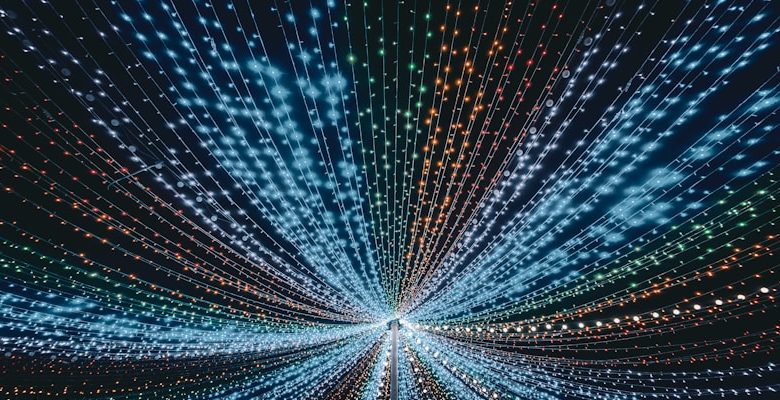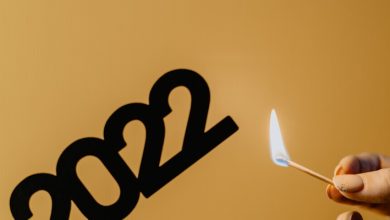The Role of Oracles in Connecting Blockchain with Real-World Data

- The Importance of Oracles in Blockchain Technology
- How Oracles Bridge the Gap Between Blockchain and Real-World Data
- Exploring the Functionality of Oracles in Decentralized Systems
- Challenges and Solutions in Utilizing Oracles for Data Integration in Blockchain
- The Role of Trusted Data Sources in Oracles for Secure Transactions
- Case Studies on Successful Implementation of Oracles in Blockchain Projects
The Importance of Oracles in Blockchain Technology
Oracles play a crucial role in blockchain technology by serving as a bridge between the blockchain and real-world data. They are third-party services that provide smart contracts with external information, allowing them to interact with data outside of the blockchain network. This is essential for decentralized applications that require access to real-time information such as market prices, weather conditions, or sports scores.
Without oracles, blockchain-based applications would be limited to only processing data that is already stored on the blockchain. This would severely restrict the functionality and use cases of decentralized applications. Oracles enable smart contracts to access and process data from the external world, making blockchain technology more versatile and practical.
Oracles are designed to verify and authenticate the data they provide to smart contracts, ensuring its accuracy and reliability. This is crucial for maintaining the integrity of the blockchain network and preventing malicious actors from manipulating the data. By leveraging oracles, developers can create decentralized applications that are more secure and trustworthy.
In conclusion, oracles play a vital role in connecting blockchain technology with real-world data, enabling decentralized applications to access and process external information. Their ability to provide reliable data to smart contracts is essential for the widespread adoption of blockchain technology in various industries. By incorporating oracles into blockchain networks, developers can unlock new possibilities and create innovative applications that leverage the power of decentralized technology.
How Oracles Bridge the Gap Between Blockchain and Real-World Data
Oracles play a crucial role in bridging the gap between blockchain technology and real-world data. They act as intermediaries that fetch external data and feed it into smart contracts on the blockchain. This functionality is essential for decentralized applications that require access to off-chain information to execute their operations accurately.
By leveraging oracles, blockchain-based projects can interact with real-world events, such as weather conditions, stock prices, sports scores, and more. This capability enables smart contracts to make decisions based on up-to-date information, enhancing their utility and relevance in various industries.
Oracles come in different forms, including software, hardware, and even human input. They can retrieve data from APIs, IoT devices, web scraping, and manual entry, depending on the specific requirements of the application. This flexibility allows developers to choose the most suitable oracle solution for their project, ensuring seamless integration with external data sources.
Exploring the Functionality of Oracles in Decentralized Systems
Exploring the functionality of oracles in decentralized systems is crucial for understanding how blockchain technology can effectively connect with real-world data. Oracles act as data feeds that provide smart contracts with external information to trigger actions based on predefined conditions. By leveraging oracles, decentralized applications can access off-chain data, such as price feeds, weather information, or sports scores, to execute transactions autonomously.
Oracles play a vital role in bridging the gap between the blockchain and the physical world, enabling smart contracts to interact with real-world events and data. This functionality opens up a wide range of possibilities for decentralized applications, from decentralized finance (DeFi) platforms to supply chain management systems. With oracles, blockchain networks can become more versatile and powerful, offering new ways to securely exchange value and information.
Challenges and Solutions in Utilizing Oracles for Data Integration in Blockchain
When it comes to integrating real-world data into blockchain networks, one of the main challenges is ensuring the accuracy and reliability of the information provided by oracles. Oracles act as bridges between the blockchain and external data sources, but they are vulnerable to manipulation and tampering. This poses a significant risk to the integrity of the blockchain system as a whole.
One solution to this challenge is the use of multiple oracles to verify and cross-reference the data being inputted into the blockchain. By aggregating information from different sources, the system can reduce the chances of errors or fraudulent activities. Additionally, implementing consensus mechanisms among oracles can help validate the accuracy of the data before it is accepted onto the blockchain.
Another obstacle in utilizing oracles for data integration is the issue of trust. Since oracles are external entities, there is always a level of uncertainty regarding their reliability and honesty. To address this concern, smart contracts can be used to enforce agreements between parties and automate the verification process. This way, the reliance on trust is minimized, and the system becomes more transparent and secure.
The Role of Trusted Data Sources in Oracles for Secure Transactions
Trusted data sources play a crucial role in ensuring the security and reliability of transactions on blockchain networks through oracles. Oracles act as intermediaries that connect smart contracts with real-world data, allowing decentralized applications to access external information. By utilizing trusted data sources, such as reputable APIs or data providers, oracles can verify the accuracy and authenticity of the data being fed into the blockchain.
When selecting data sources for oracles, it is essential to prioritize reliability and credibility. By relying on trusted data sources, blockchain networks can mitigate the risk of fraudulent or inaccurate information being used in transactions. This helps to maintain the integrity of the blockchain ecosystem and build trust among users and stakeholders.
Furthermore, by establishing partnerships with reputable data providers, blockchain projects can enhance the security and efficiency of their operations. These collaborations enable oracles to access high-quality data in a timely manner, ensuring that smart contracts are executed based on accurate and up-to-date information. This, in turn, minimizes the potential for errors or manipulation in transactions.
Case Studies on Successful Implementation of Oracles in Blockchain Projects
Several case studies have shown the successful implementation of oracles in various blockchain projects. These examples demonstrate the crucial role that oracles play in connecting blockchain networks with real-world data sources, enabling smart contracts to interact with external information. Below are some notable examples of how oracles have been effectively utilized in blockchain applications:
- Supply Chain Management: One of the most common use cases for oracles in blockchain is in supply chain management. By integrating oracles, companies can track and verify the authenticity of products at every stage of the supply chain, ensuring transparency and accountability.
- Insurance Claims: Oracles have also been instrumental in streamlining the insurance claims process. By automating the verification of claims data through oracles, insurers can expedite the payout process and reduce the risk of fraud.
- Decentralized Finance (DeFi): Oracles are a fundamental component of decentralized finance (DeFi) platforms, where they provide price feeds for various assets, enabling the execution of complex financial transactions on the blockchain.
These case studies illustrate the diverse applications of oracles in blockchain technology and highlight their importance in bridging the gap between blockchain networks and real-world data sources. As the adoption of blockchain continues to grow, the role of oracles in ensuring the integrity and reliability of data on the blockchain will become increasingly critical.



